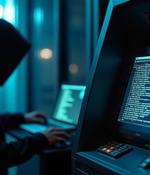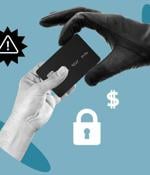Security News

North Korean threat actors have been observed using a Linux variant of a known malware family called FASTCash to steal funds as part of a financially-motivated campaign. The malware is "installed...

Gangs hit 5% of all Adobe Commerce, Magento-powered stores, Sansec says Ray-Ban, National Geographic, Whirlpool, and Segway are among thousands of brands whose web stores were reportedly...

Criminals with plenty of time on their hands may now have credit card details Around 1.7 million people will receive a letter from Florida-based Slim CD, if they haven't already, after the company...

Payment gateway provider Slim CD has disclosed a data breach that compromised credit card and personal data belonging to almost 1.7 million individuals. [...]

Cybersecurity researchers have uncovered new Android malware that can relay victims' contactless payment data from physical credit and debit cards to an attacker-controlled device with the goal of...

The American Radio Relay League (ARRL) paid a $1 million ransom for a decryptor that helped restore systems encrypted in a May ransomware attack [...]

Fraudsters can add stolen payment cards to digital wallet apps and continue making online purchases even after victims' report the card stolen and the bank blocks it, computer engineers with University of Massachusetts Amherst and Pennsylvania State University have discovered. Adding the card to a different wallet and making fraudulent purchases is made possible by the trust banks have in the digital wallet apps' security mechanisms.

Google is notifying Russian YouTubers, bloggers, and publishers that their Adsense accounts are being deactivated and can no longer be used for advertising. [...]

U.S. and German law enforcement seized the domain of the crypto wallet platform Cryptonator, used by ransomware gangs, darknet marketplaces, and other illicit services, and indicted its operator. [...]

India's central bank on Wednesday proposed a requirement for dynamically generated second authentication factors for most digital payments. "Reserve Bank of India had mandated additional factor of authentication for all transactions undertaken using cards, prepaid instruments and mobile banking channels," explained the central bank.